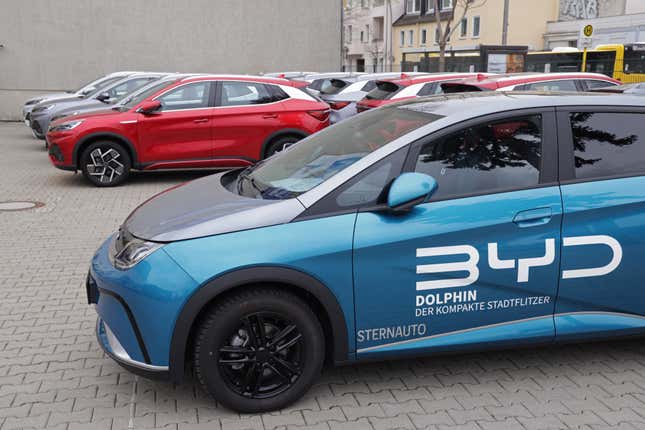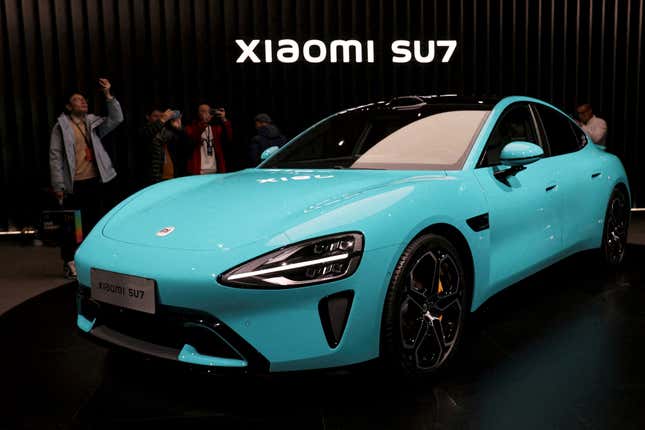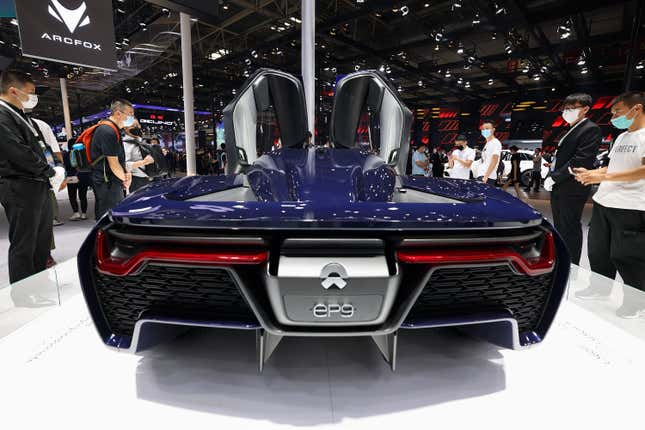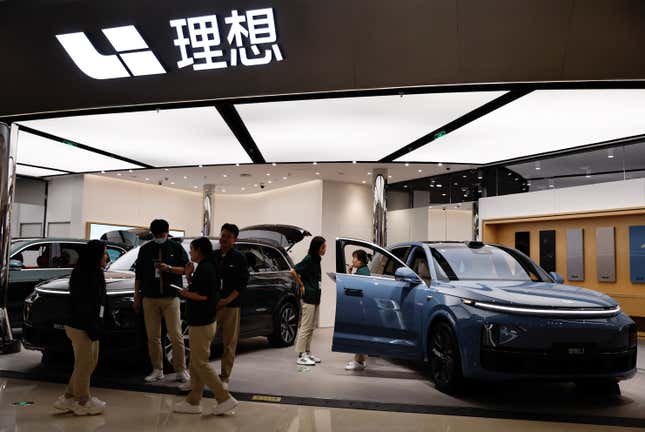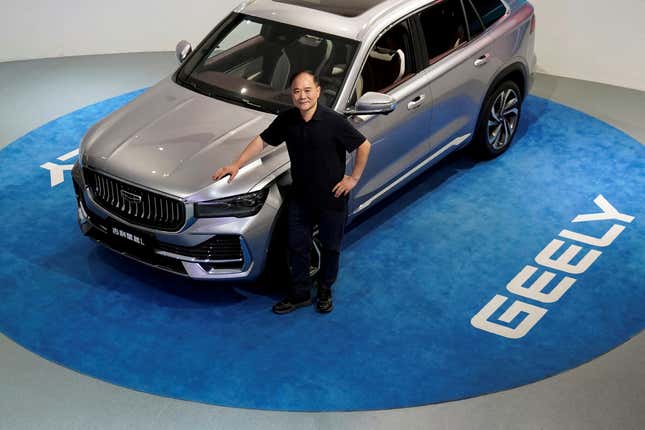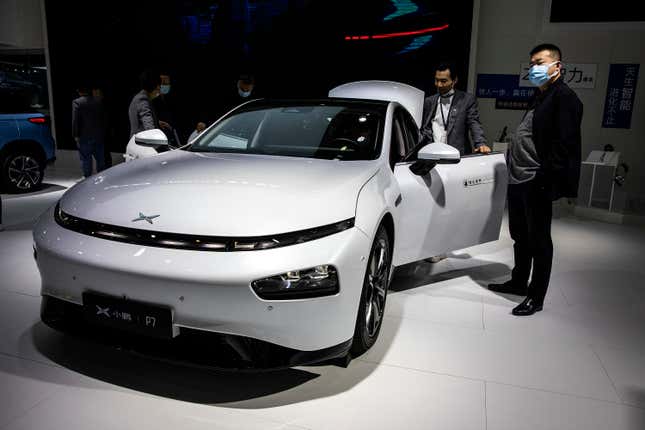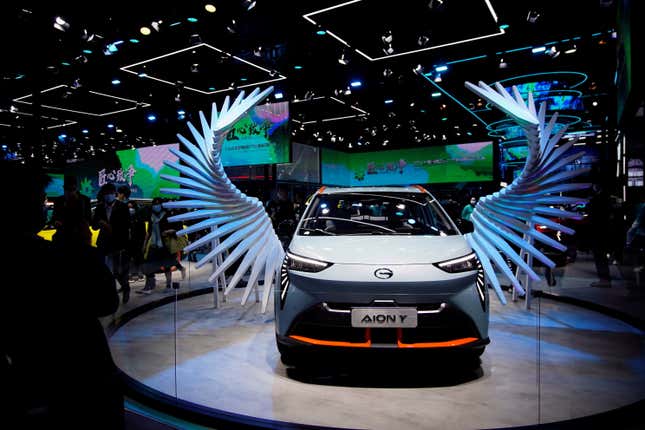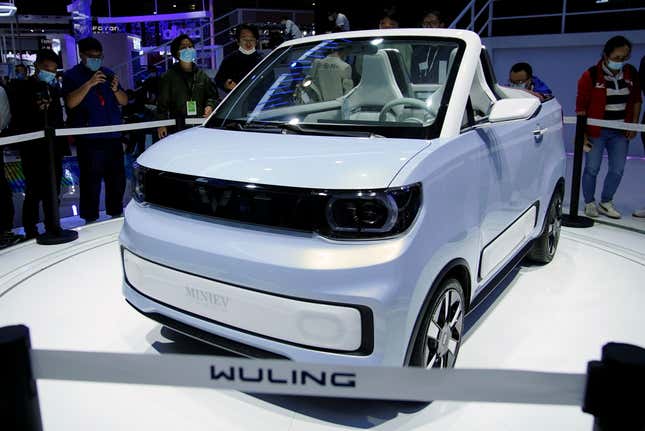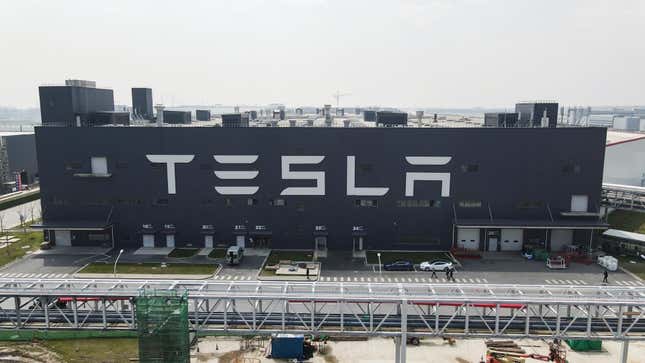
Like many Western automakers, Tesla is dealing with a slew of tough rivals in the world’s largest auto market.
As of 2023, there are about 123 automakers actively selling electric vehicles in China, many of which are fueled by generous subsidies from Beijing. In the domestic market, automakers are struggling through a price war — led by BYD, Tesla’s biggest rival — and slowed EV sales growth. They’re also looking overseas and growing EV exports to countries across Europe, Asia and Oceania, flooding those markets with cheap cars.
Seventy-one new battery electric models are expected to launch in China this year from domestic companies. Besides growing the sheer number of cars on the market, automakers are investing heavily in new technology like driver-assistance software and EV car batteries.
And, despite Elon Musk notching what appears to be a major win for Tesla’s operations in China last week — a deal with Baidu — many of Tesla’s rivals aren’t far behind. Here are some of the biggest competitors giving Tesla a run for its money.
